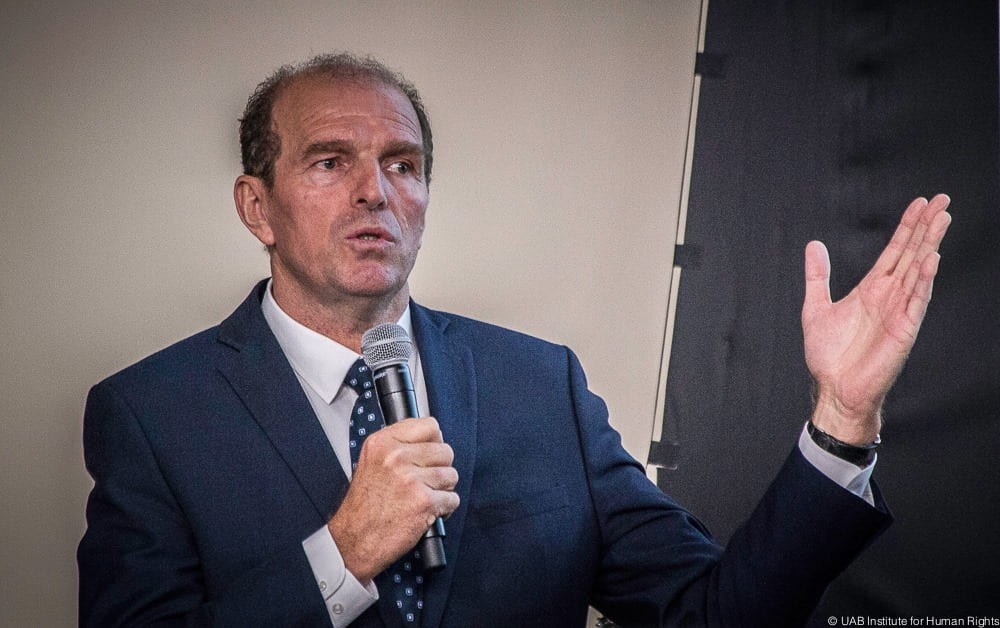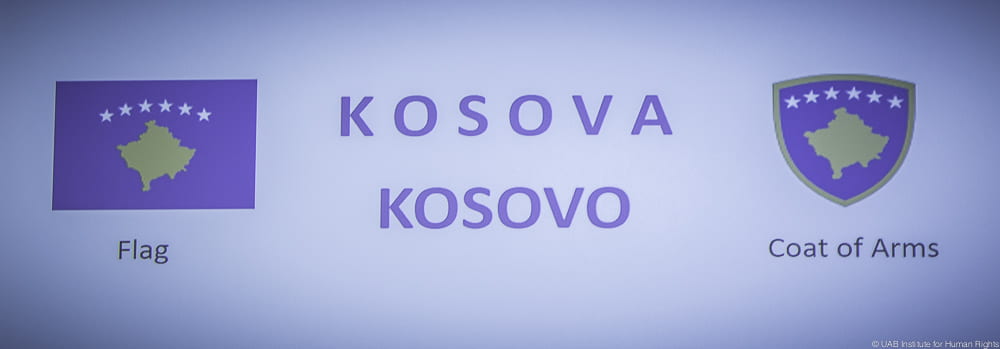
Ambassador Ahmet Shala, former Minster of Economy and Finance in the government of Kosovo, recently visited the University of Alabama at Birmingham’s Institute for Human Rights to speak with faculty and students about minority rights in the Balkan Peninsula, current economic development in Kosovo, as well as efforts to modernize the country.
The Republic of Kosovo is located in South Eastern Europe nestled among a group of nations, which were part of former Yugoslavia. In 1990, economic disparities in Yugoslavia led to increased tensions in the ethnically diverse territory. As the economy declined, Croats, Bosniaks, Slovenes, Albanians, Montenegrins and Macedonians began to promote ideas of ethnic nationalism. Croatia and Slovenia were the first to seek a split from the union, followed closely by a brutal war in Bosnia and Herzegovina, and later Kosovo. This series of wars for independence spanned nearly a decade and as Human Rights Watch reports many human rights violations were committed, in addition to the ethnic cleansing of several groups, which left thousands of civilians dead.
After years of Serbian crackdowns in Kosovo, NATO intervention led to the small territory’s liberation and recognition as a United Nations protectorate from 1999-2008. Finally in 2008, Kosovo declared independence and today is recognized by 110 countries as a sovereign state. The road to independence was littered with atrocities and war crimes based on ethnicity. According to Ambassador Shala, “the different groups in Yugoslavia did not feel as if they were citizens. Slavic people are different from Albanians, which was the key feeling for minorities.” Ambassador Shala added that the resulting Yugoslav wars became “Apartheid on the heart of Europe.” From the onset of the conflict, many ethnic Albanians were fired from their jobs, not allowed to attend school or university, and thousands were either killed or imprisoned.
Although, the situation improved under the UN protectorate, according to Ambassador Shala, the UN administration was incompatible with the needs of the Kosovars. Ambassador Shala commented, “There were UN soldiers on the ground from other countries that had no idea about the needs of the people” and “there was no sustainable vision for the future and no real goals, which led to increased anxiety and frustration.”

After independence, the leaders of the Republic of Kosovo have made tremendous strides in determining the future of the country. From its inception, the idea has been that Kosovo would be a true democratic society, which embraces its multicultural identity and provides equal rights to all citizens. Today, the country seeks to create partnerships with its neighbors, fully integrate into the international community and become a member of NATO, the European Union, as well as the United Nations. The country is well on its way to succeeding at its stated goals. In 2013, the country had an estimated population of 1.86 million and according to economists as of 2015, Kosovo had a GDP (ppp) of 9140.10 billion USD. There are still some hurdles to cross, namely, not all NATO countries have recognized Kosovo as a nation; this has not stopped the ambitions of the young nation. In a recent interview with EURACTIV, the Brussels based EU policy driven news outlet, Kosovar Foreign Minister Enver Hoxhaj explains how important it is for Kosovo to become a member of both the EU and NATO. Hoxhaj states, “being an EU member is the best way to modernise [sic] politics, the economy and society. For us, it is a modernising [sic] agenda that will allow us to compete with others in the region and to grow.”

